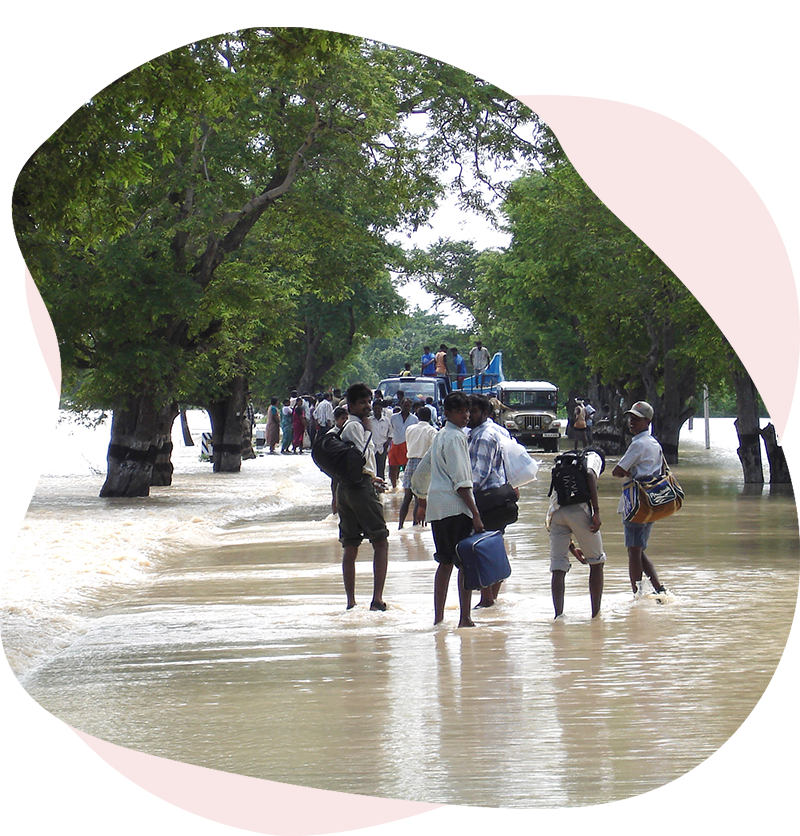
In the past decade, humanitarian needs have steadily increased worldwide, with the number of people in need reaching 168 million in 2020, its highest level since 2012 (UN OCHA, 2021). ADE contributes to improving the humanitarian response by conducting rigorous evidence-based assessments. Since 2010, ADE has conducted an impressive series of major strategic evaluations of the response to humanitarian crisis and on specific humanitarian issues.
ADE is currently leading two Framework Contracts for strategic evaluations in this field: for the European Commission’s Directorate-General for Humanitarian Aid and Civil Protection (DG ECHO), and for the United Nations’ World Food Programme (WFP).
In the coming years, humanitarian needs and response will be deeply affected by the COVID-19 pandemic, which has had a devastating impact on the most vulnerable populations through the indirect effects of lockdowns and global recession, through more difficult access for humanitarian workers, and through the potential decrease in funding. ADE continues to develop its expertise in the humanitarian field.
Project examples
- WFP – Ukraine: Corporate Emergency Evaluation of WFP’s Response in Ukraine (2024E)
- WFP – Iraq: Evaluation of Iraq WFP Country Strategic Plan (2024E)
- WFP – Evaluation of WFP’s Emergency Preparedness Policy (2024E)
- Norway/NORAD – Evaluation of the Triple Nexus – Humanitarian aid, development cooperation and peace efforts (2024)
- WFP – Evaluation of WFP’s Disaster Risk Reduction and Management and Climate Change Policies (2023)
- Belgium/SEO – Evaluation of the Belgian strategy for humanitarian aid (2022)
- WFP – Strategic evaluation of WFP’s use of technology in constrained environments (2022)
- ECHO – Yemen: Evaluation of the EU’s humanitarian interventions in Yemen and in Humanitarian Access (2022)
- WFP – Lebanon: Evaluation of WFP’s County Strategic Plan for Lebanon (2021)
- WFP – Zimbabwe: Evaluation of WFP’s Country Strategic Plan for Zimbabwe (2021)
- ECHO – Ex post evaluation of the EU’s Aid Volunteers Initiative (2021)
- ECHO – Evaluation of the implementation of the DG ECHO Gender Policy (2021)
- ECHO – Rohingya: Evaluation of the EU’s response to the Rohingya refugee crisis in Bangladesh and Myanmar (2021)
- ECHO – India & Nepal: Evaluation of the EU’s humanitarian interventions in India and Nepal (2018)
- ECHO-INTPA – Evaluation of the EU’s Approach to Resilience to food crises in African Drylands – Sahel & Horn (2017)
- ECHO – Study on Approaches to assess Cost-effectiveness of DG ECHO’s Humanitarian Aid actions (2017)
- ECHO – Evaluation of ECHO’s Use of Different Transfer Modalities (2016)
- ECHO – Syrian crisis: Evaluation of ECHO’s Response to the Syrian Crisis (2014)
- ECHO – Evaluation of the implementation of the European Consensus on Humanitarian Aid (2014)